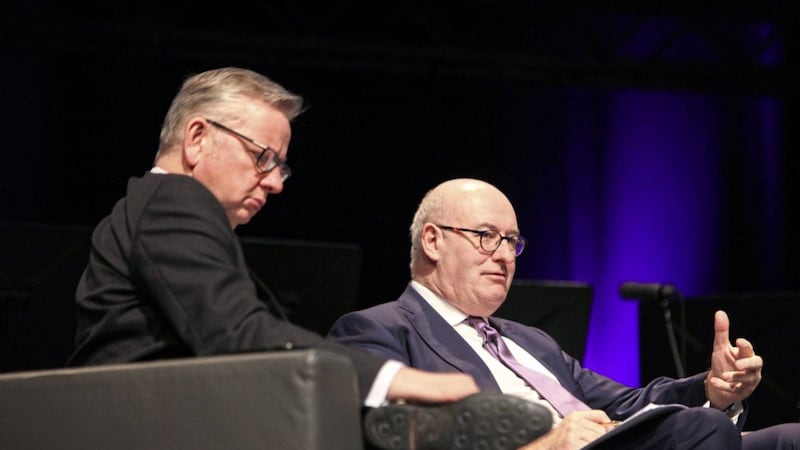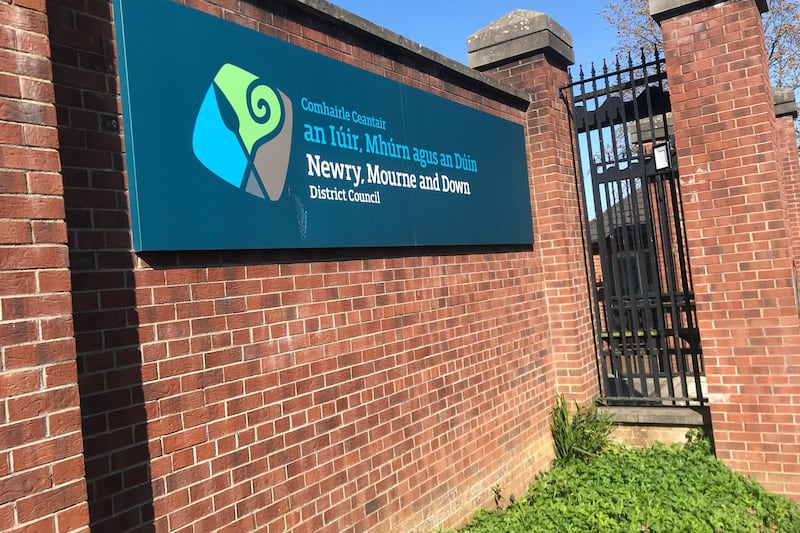ENVIRONMENT Secretary Michael Gove used a platform in Belfast yesterday to launch a £40 million grants scheme for investment in cutting edge farm technology and equipment to improve the processing of milk, meat and fruit.
But farmers and food processors in Northern Ireland need not apply for cash under the Countryside Productivity Scheme - because it only applies to mainland Britain.
Mr Gove was among a number of world political and agricultural leaders attending the 2017 World Dairy Summit in Belfast's Waterfront Hall, which was told that dairy is committed to playing a vital dual role in feeding the world with nutritious foods - and protecting the environment.
He told the summit that the UK Government is committed to supporting the dairy industry.
"Farmers truly are the backbone of our rural economy, and as the original friends of the earth, we want to support them to grow more, sell more and export more great produce – all while doing good for our environment," he said.
He described the new funding package as "a wonderful opportunity for our farmers and food processors to invest in the technology they need to boost productivity, competition and, of course, sustainability as a key factor in future proofing our world leading food and farming industry".
But local farm chiefs expressed their disappointed that the scheme is unlikely to apply in Northern Ireland.
Mr Gove went on to say that during Brexit negotiations, the UK Government wants to ensure that supply lines are solid, no barriers to trade are erected and labour can be accessed where it is needed.
"This will be very much at the forefront of our minds", he said.
"As we leave the EU, we have a great opportunity to make sure our food and farming industry is leading the way in modern, creative thinking."
Phil Hogan, the EU Commissioner for Agriculture and Rural Development, also addressed the summit, where he said the issue of free movement of people was "a difficult issue for the UK and for the EU for different reasons, and will require negotiations."
He said that EU agri exports continued to grow even though the sector was still adjusting to the post-quota environment, and claimed there is "a real need for an ongoing commitment to sustainability from farm to fork".
Dr Judith Bryans, president of the International Dairy Federation, who have brought their international summit to Belfast for the first time, said the global dairy community is one billion people strong and is currently feeding six billion consumers.
She said: "The message from across the global sector is quite clear - the industry must be committed to highlighting the nutritional benefits of dairy and confronting the many myths that are peddled by the anti-dairy lobby. It is a major challenge but one that dairy can rise to."








